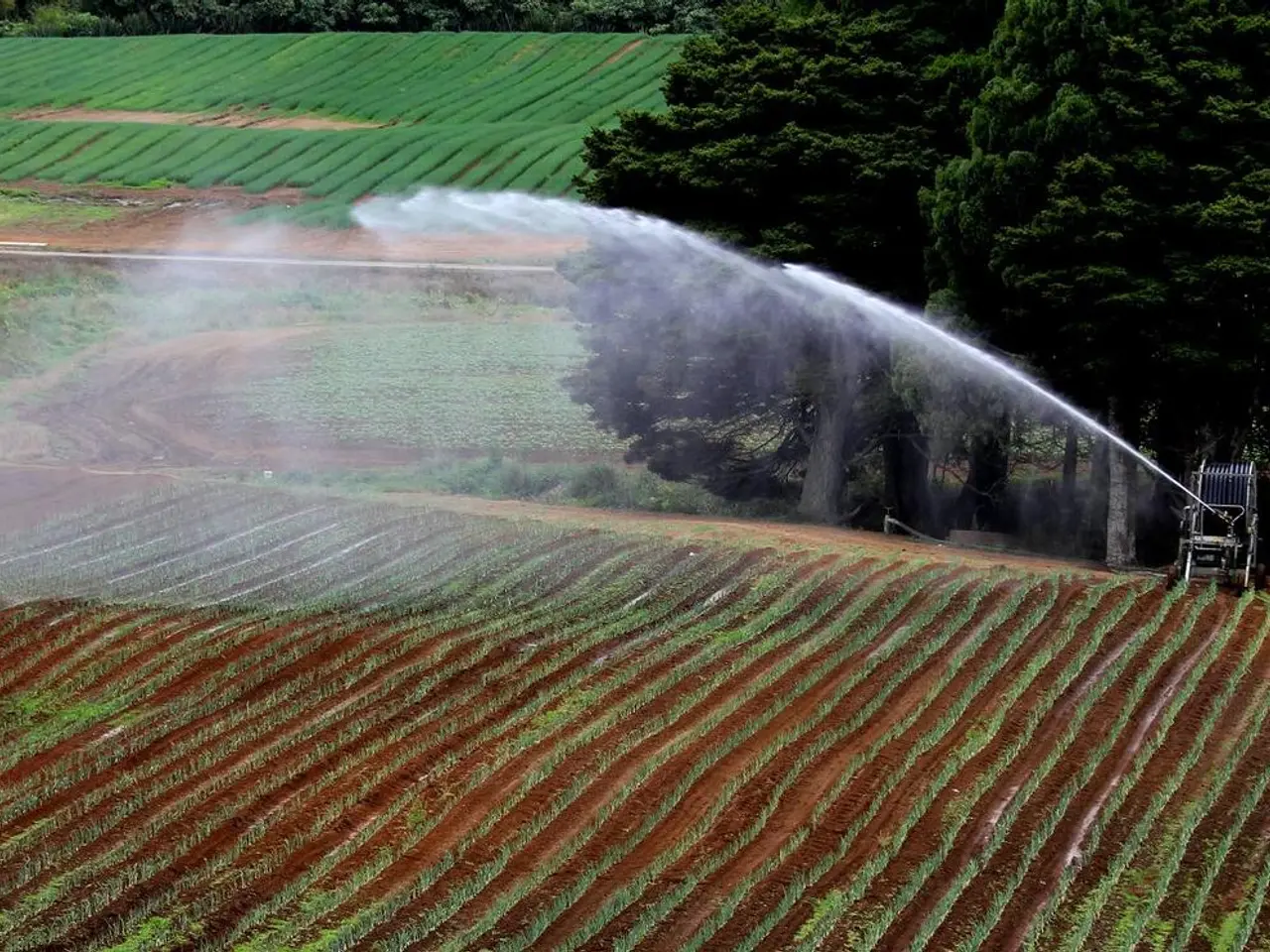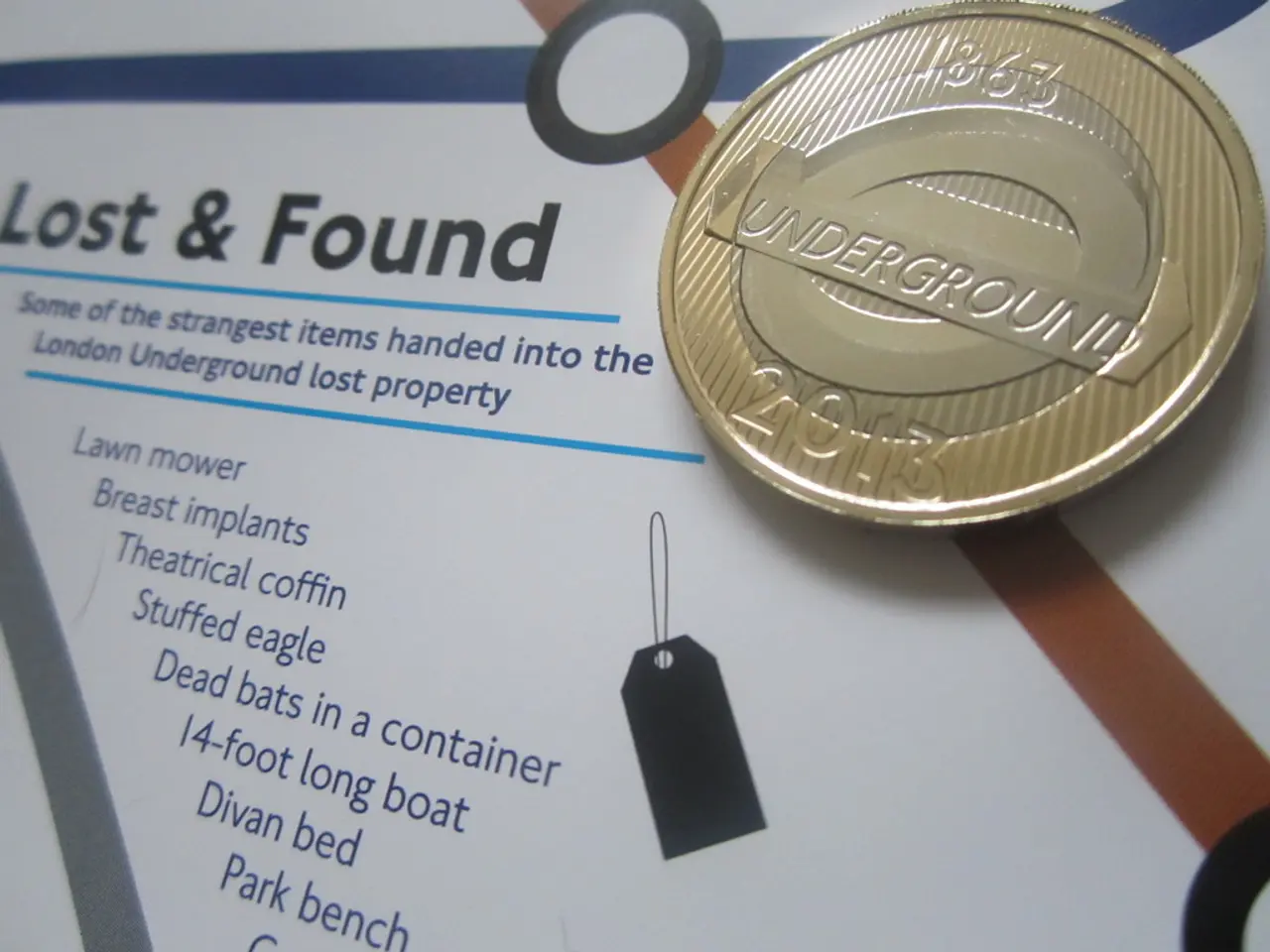Over two-thirds of Astana's workforce comprises employees within Small and Medium Enterprises.
In the heart of Kazakhstan, the bustling city of Astana currently houses over 254,000 Small and Medium Enterprises (SMEs), marking an impressive 8.3% increase since 2024. This growth has significant implications for the city's workforce, with 528,000 individuals employed within the SME sector, accounting for an impressive 73% of the city's total employable population.
Kuanyash Saparov, the deputy head of Astana's Investment and Entrepreneurship Development Department, recently shed light on the city's dedication to fostering entrepreneurship during a briefing at the Communication Service. According to Saparov's reports, SMEs generated goods and services worth a staggering 15.8 trillion tenge in 2024, contributing 19% to the total output in the republic.
This remarkable development can largely be attributed to the financial and non-financial state support measures implemented to bolster entrepreneurship in Astana. In an effort to provide affordable credit access, the government has introduced various programs, such as the unified comprehensive program for subsidizing interest rates, credit guarantees, and preferential lending.
As of May 2025, approximately 213 projects, worth a combined 31,725.1 million tenge, have received approval under the interest rate subsidy program, with 50 projects securing credit guarantees totaling 1,961.4 million tenge. The government also allocated 3 billion tenge under the local 'Astana Business' preferential lending program for the year.
Recent changes to the Unified Comprehensive Program have introduced interest rate subsidies for micro and small entrepreneurs in priority sectors, such as the processing industry, healthcare, and education. These funds can be used for investment purposes, working capital replenishment, and refinancing existing loans, with a loan ceiling of up to 200 million tenge, and a final interest rate of no less than 12.3% for borrowers, except for social enterprises, which receive a rate of 11.3%.
In an attempt to streamline the application process for entrepreneurs seeking funding, the government has entered into an agreement with the 'Damu' Fund. Entities approved for funding will now have their application paperwork automatically forwarded to the Fund, with the review process reduced to a swift 2 working days.
It is anticipated that the Fund will launch the new preferential lending program, 'Örleu', later this year, aimed at bolstering micro, small, and medium-sized businesses in key sectors like agriculture, transport, healthcare, and education.
Amid the flurry of financial support measures, the government continues to prioritize social entrepreneurship in the city. To this end, state grants will continue to be allocated for individuals engaged in socially oriented small and medium-sized businesses. This year, the competition for these grants is scheduled for the last quarter (October).
Successful applicants will receive grants on a non-repayable basis, provided they meet certain conditions, such as co-financing and creating jobs. To participate, entrepreneurs must first register in the registry of social entrepreneurs.
The Ministry of National Economy of Kazakhstan has established the term "social entrepreneurship," categorizing potential applicants into four groups: employment of citizens from vulnerable social groups, facilitation of sales, production, and services for the disabled, and finally, ventures working in the social sector (psychological, educational, and cultural services, among others). As of June 2024, 215 entrepreneurs have been registered thus far, with continued growth anticipated.
In the context of Astana's development, the government is providing financial support to entrepreneurs, as evidenced by the introduction of programs like the unified comprehensive program for subsidizing interest rates and the local 'Astana Business' preferential lending program, aiming to cater to the needs of small and medium enterprises (SMEs) in various sectors, such as the processing industry, healthcare, and education, for investment, working capital, and loan refinancing purposes.
Moreover, the government is fostering social entrepreneurship by allocating state grants for individuals engaged in socially oriented SMEs, targeting the creation of jobs and addressing the needs of vulnerable social groups, with the registration of entrepreneurs in the social entrepreneurship registry ongoing.




